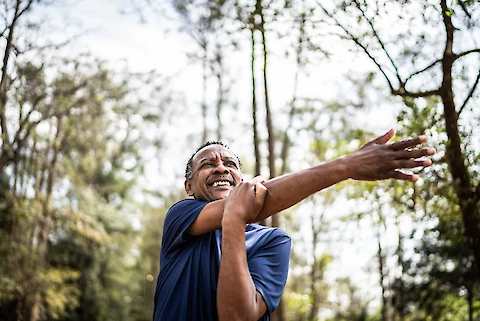
As we age, it becomes increasingly important to maintain our bone health, especially for seniors. One key component in achieving this is ensuring an adequate intake of Vitamin D. Not only does this essential nutrient help improve bone density and strength, but it also plays a crucial role in preventing age-related conditions such as osteoporosis.
Learn more about how Vitamin D can greatly impact seniors' overall bone health and well-being in the long run.
Understanding Vitamin D and How it Can Improve Bone Health in Seniors
To begin, let's first understand what Vitamin D is and how it is produced in our bodies. Vitamin D is a fat-soluble nutrient that is naturally created when our skin is exposed to sunlight. We can also obtain it through certain foods and supplements. One of the primary roles of Vitamin D is to facilitate the absorption of calcium, a mineral that is essential for maintaining strong bones and teeth.
For seniors, the recommended daily intake of Vitamin D is between 800 to 1000 International Units (IU). However, this depends on factors such as age, sun exposure, and overall health.
Long-Term Approach to Maintaining Sufficient Vitamin D Levels
The key to maximizing bone density and health with Vitamin D lies in adopting a long-term and consistent approach. Here are three essential aspects of this approach:
1. Consistent Daily Intake of Vitamin D Through Diet and Supplements
Incorporating Vitamin D-rich foods into seniors' everyday meals can help them meet their daily requirements. Foods such as fatty fish (salmon, mackerel, and tuna), egg yolks, cheese, and fortified foods (milk, orange juice, and cereals) are all excellent sources of Vitamin D. In addition, if seniors are unable to meet their Vitamin D needs through food alone, they should consider adding a daily supplement to their routine. However, it's important to consult with a healthcare provider before starting any new supplement regimen.
2. Regular Exposure to Sunlight for Natural Vitamin D Production
Spending time outdoors and getting moderate sun exposure can help seniors produce Vitamin D naturally. They should aim for about 10-30 minutes of sunlight on their face, arms, legs, or back, at least twice a week. However, they should be mindful of the potential risks of excessive sun exposure, such as skin cancer. Seniors should take necessary precautions, like applying sunscreen and wearing protective clothing.
3. Monitoring Vitamin D Levels Through Blood Tests
To ensure that seniors are maintaining optimal Vitamin D levels, it is crucial to have their levels checked regularly through blood tests. A healthcare provider can help seniors determine the frequency of these tests based on their individual needs and risk factors.
Tips for Ensuring Adequate Vitamin D Intake
Incorporating the following tips can help seniors maintain sufficient Vitamin D levels and prioritize their bone health:
Discussing Concerns With a Doctor
If seniors are worried about their Vitamin D intake or bone health, consult with a healthcare provider. They can offer personalized recommendations based on seniors' specific needs, as well as address any potential side effects or interactions with other medications they may be taking.
Setting Daily Reminders for Vitamins or Supplements
Creating a routine and setting reminders, such as using a pill organizer or setting an alarm on seniors' phones, can help them remember to take their Vitamin D supplements consistently. Incorporating the supplements into their daily routines, like taking them with breakfast or dinner, can also make it easier to remember.
Adding Pill Management to a Caregiver's Duties
If seniors have a caregiver, discuss the importance of consistent Vitamin D intake with them. Ensure they are aware of seniors' daily supplement requirements. A caregiver can help monitor any changes in their health or potential side effects that may arise from taking supplements.
Senior Helpers Sheboygan Provides In-Home Care Assistance to Maximize Seniors' Bone Health
Adopting a long-term approach to maintaining sufficient Vitamin D levels through a combination of diet, supplements, and natural sources is essential for maximizing bone density and overall bone health in seniors. By prioritizing Vitamin D intake, seniors will be taking a proactive step toward preventing age-related bone conditions and promoting a healthier lifestyle.
For seniors living in Sheboygan, Plymouth, Cedar Grove, Port Washington, Saukville, Kewaskum, Chilton, Kiel, New Holstein, or Mount Calvary who need assistance with daily routines or senior care, consider reaching out to Senior Helpers Sheboygan for compassionate and professional support. Our experienced team can provide in-home care services to seniors to help them get the Vitamin D they need. Contact us today to learn more.